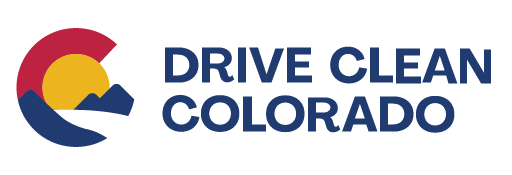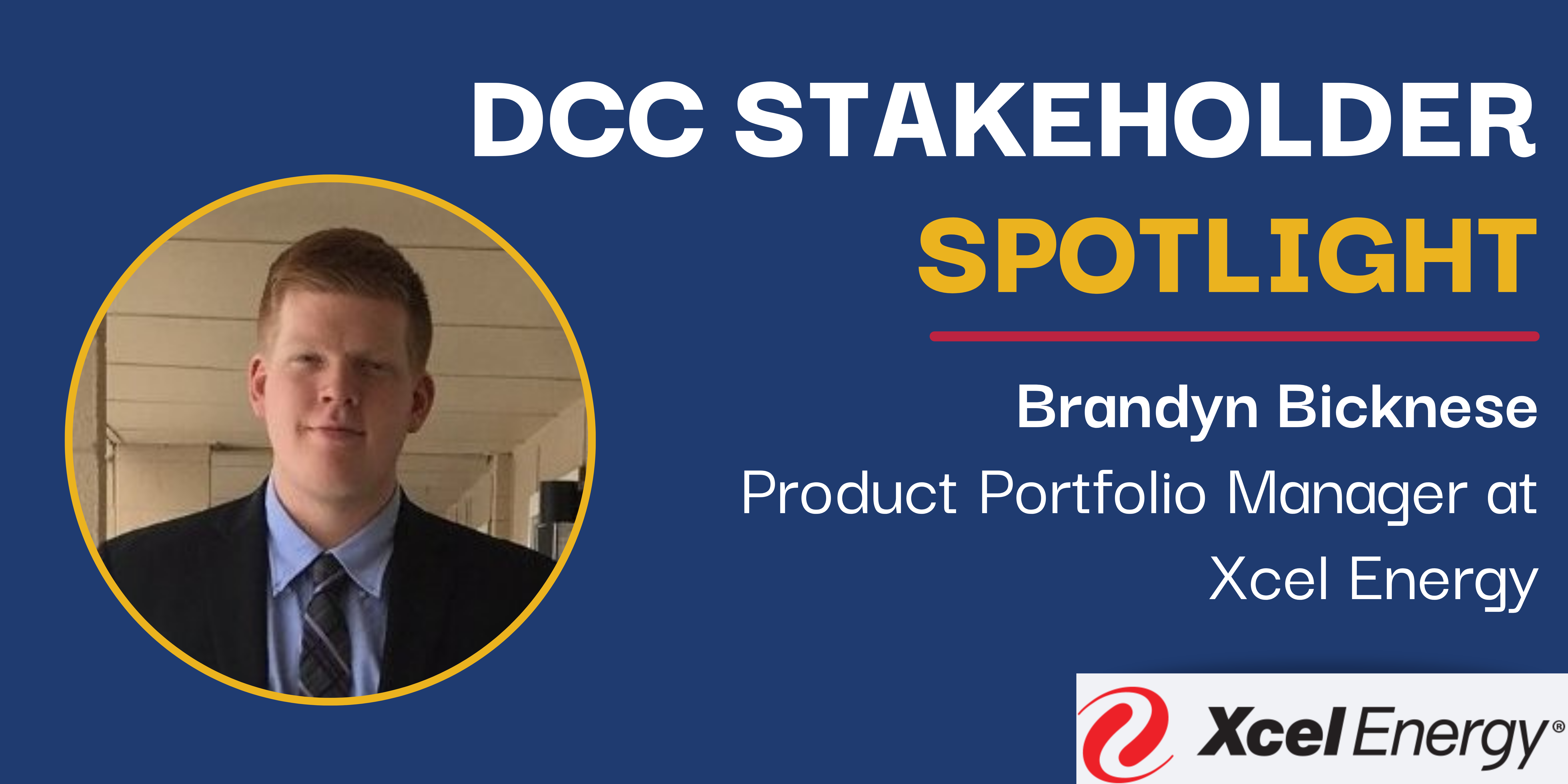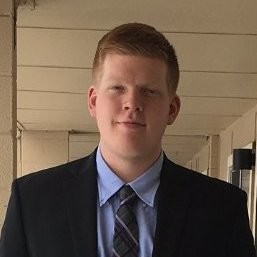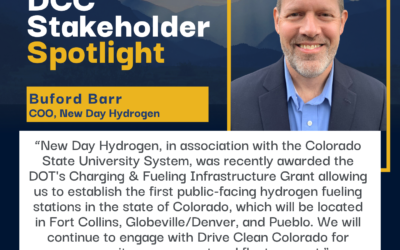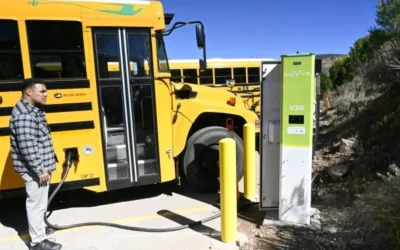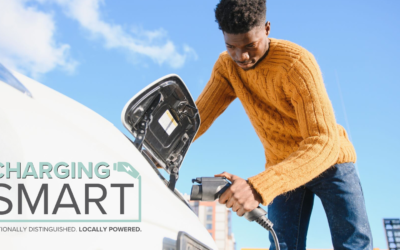Drive Clean Colorado (DCC) is privileged to have Xcel Energy (Xcel) as one of our Sustaining Partners. A major utility in Colorado, Xcel recently created programs to help accelerate the transition to electric vehicles. Xcel’s programs provide and fund EV charging for workplaces, fleets, multi-family communities, and others. Brandyn Bicknese, a Product Portfolio Manager at Xcel Energy, took the time to talk with us about Xcel’s electric vehicle charging initiatives and its partnership with Drive Clean Colorado. Keep reading to learn about how Xcel’s work supports electric vehicle adoption in Colorado and how working with DCC can help them accomplish their goals.

*Note: The following answers are summarized from an interview with Brandyn Bicknese from Xcel
Xcel Energy has new programs for electric vehicle (EV) charging for workplaces, fleets, multi-family communities and others. Can you tell us a little about the history of this initiative and the goals of these programs?
As part of a Senate bill in Colorado, Xcel created a transportation electrification plan, the most robust one we’ve ever had for electric vehicle EV programs. It focuses on the commercial aspects of EVs in Colorado – workplace, fleet, community charging hubs, small commercial – and the programs support EV supply infrastructure, electric vehicle purchase, and more. My work specifically is focused on multifamily housing which includes things like rebates for income qualified customers and those in high-emissions communities to help them pay for charging equipment.
The single biggest reason these programs exist it to overcome the barriers to electric vehicle adoption. We have some broad, ambitious goals set for 2030 and aim to have 1.5 million EVs in our service territory, $1 billion in customer fuel savings annually, $1 or less per gallon equivalent to charge a vehicle, and 5 million tons of eliminated CO2 emissions, all by 2030. At our current operations and power generation, replacing a gas car with an EV in our system can cut the tons of CO2 produced per vehicle in half. By 2030 we want to be able to cut that amount in half again. To accomplish this emissions reduction goal, we are creating awareness and understanding of EVs through customer education and outreach with things like our residential website, which helps people select vehicles based on features, available rebates, and more.
We also aim to minimize complexity for our customers by being involved with program management and construction, especially in our commercial portfolio. We provide our clients with EV advisors to help walk them through the electrification process and bring on experienced contractors to help, similar to how the ReCharge coaches work through DCC. My favorite of our initiatives for breaking down barriers is the focus on equity for income-qualified customers. Equity is a huge overarching theme here and it’s something that has widely been ignored in EV adoption and something that we as a utility have the responsibility to address.
What does a regular week look like for you?
Lately it’s been getting these programs ready for launch and connecting with people – customer contact is very important for success. Our goal is to meet customers where they are in the process, whether that’s never having heard of electric vehicles or being ready to get into a program right away. A good chunk of the work for anybody on the EV team is this customer communication to find out where people are and where we can meet them with our resources to get them where they need to be. We also do work with the operations side of building these programs, which is where the minimizing complexity and hassle factor comes in. Our motto on a lot of the projects I work on is “made ready” – we want to make sure you don’t have to talk to 20 people to get equipment installed and that it isn’t going to constantly be a burden to maintain.
Do you have a favorite project you’re working on that you would like to share?
I love any work we’re doing with electrifying school bus fleets. Those vehicles are really unique and there’s a lot of movement in that world right now. In terms of projects I am directly involved in, there’s a huge gap in how billing situations work for multifamily car charging and I am looking forward to addressing that. There’s a lot of additional barriers to getting charging installed in condos or apartments and we want to help overcome those with things like assigned parking, which is a new arrangement for billing that allows us to do metering through charging equipment so individual parking spot owners get billed instead of one site host, like the HOA or the property management company. I am very excited about that technology and I can’t wait to see how much of an impact it has on charging infrastructure for these multifamily communities.
Xcel Energy and Drive Clean Colorado recently entered into a working agreement to support EV efforts across Colorado, what are you most excited for about this collaboration?
I am personally very excited to be working with DCC. We’ve done some infrastructure webinars with you all in the past that resulted in a lot of customer interest and great questions about what we offer. I am also looking forward to finding efficiencies between Xcel’s EV advisors and the work DCC is doing with the Charge Ahead Colorado grant to discover more effective ways to reach our workplace customers. There are so many places where our work overlaps with DCC’s and your goals align so well with Xcel’s mission to reduce carbon emissions and increase EV adoption within our service territories. Reaching rural communities and underserved communities, especially in the Denver-Metro area, is something that you are all very equipped and competent at doing and continuing to work together can help us reach more people. Working with DCC has just been an overall fun experience and your whole team is incredible to work with.
See more DCC Member Spotlights or learn more about joining DCC today!

